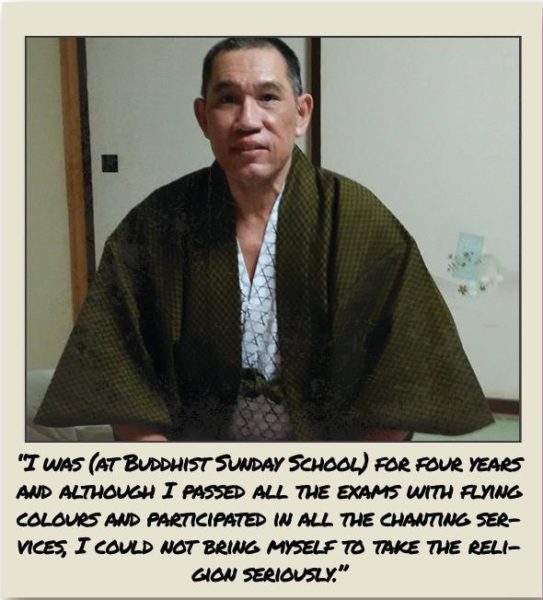Then my grandfather passed away, and my father got a monk and his followers to conduct the funeral ceremony. That seemed to awaken his latent interest in Buddhism and he insisted on sending my brother and I to Buddhist Sunday School. I was there for four years and although I passed all the exams with flying colours and participated in all the chanting services, I could not bring myself to take the religion seriously.
Once I went to the temple with a Bible in my pocket. There was the usual passing around of flowers ritual, and when it came to my turn, I dropped the whole vase of flowers on the floor. It was an accident but when my father discovered later about the Bible in my pocket, he insisted that that must have something to do with it. It was around that time too that I told my father I didn’t believe in Buddhism, but he insisted that I continue with Sunday School.
The turning point came when during my early teens, I accidentally discovered a book — The Humanist Revolution by Hector Hawton. It’s long out of print, but the book was a revelation because it echoed all the views that had been swirling around in my head for months, maybe even years. After reading the book, I considered myself a humanist there and then.
A few years later, there was Betrand Russell’s Why I Am Not A Christian. I read the book multiple times and even wrote a chapter by chapter summary of it. My path to atheism was more or less set.
I was busy with life in my twenties, and there was no space for religion at all — I had long given up on Christianity as well as Buddhism. I enrolled as a student at NUS in my thirties and encountered the Free Inquiry magazine at the library. I also spent many hours having online arguments with mostly Christians at the varsity’s internal forum — this was in the 80’s, before the advent of the Internet. I also majored in Philosophy and of course, that made me more skeptical of religion than ever. More than an atheist, I also became a determinist, and my views have not changed much since then….
Yeo Khirn Hup





